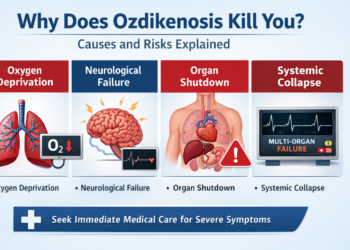
Alzheimer’s disease, a progressive neurodegenerative disorder, has long been a focus of medical research due to its significant impact on individuals and society. While there’s no known cure, scientists continue to explore various approaches for its prevention and management. Recent studies suggest a surprising ally in this battle: weight loss drugs. Considering the intricate connection between metabolic health and cognitive function, these medications might just hold the key to reducing the risk of Alzheimer’s. A study highlighted the potential for certain weight loss drugs Alzheimer’s risk. Below, we delve into the research and implications surrounding this potential breakthrough.
Exploring the Link Between Weight Loss Drugs and Alzheimer’s Risk Reduction
Alzheimer’s disease has been associated with a variety of lifestyle factors, including diet and body composition. Obesity, for example, is a known risk factor for several chronic conditions, including type 2 diabetes and cardiovascular diseases, which can also increase the likelihood of developing cognitive impairments. Researchers are now considering whether drugs designed to combat obesity might also have protective effects against neurodegenerative diseases. There is a growing body of evidence to support these assertions. The research hints at how these drugs could lower the incidence of Alzheimer’s by targeting metabolic pathways that are also implicated in neurodegeneration.
Nevertheless, it’s important to view these findings with cautious optimism. Weight loss drugs are not without side effects, and a rigorous evaluation of their long-term impact on brain health is essential. Understanding the mechanisms through which they work can help researchers determine their suitability as a preventive measure for Alzheimer’s.
The Science Behind Weight Loss Medication’s Impact on Brain Health
The brain is an energy-intensive organ, reliant on a consistent and efficient fuel supply for optimal functioning. Weight loss drugs that improve metabolic health can also promote a healthier brain environment. One way these drugs may exert neuroprotective effects is by enhancing insulin sensitivity, a factor linked to cognitive health. Improved glucose metabolism, as a result, could lower the risk of developing neurodegenerative diseases.
Another scientific avenue being explored is the role of hormones such as leptin and ghrelin, which influence hunger and satiety. These hormones also have receptors in the brain and could impact neural circuits involved in memory and learning. Weight loss medications that affect the signaling of these hormones could inadvertently influence brain plasticity and resilience against the pathology of Alzheimer’s disease.
Moreover, chronic inflammation is a key player in the development of both obesity and Alzheimer’s disease. By reducing inflammatory markers, weight loss drugs may also reduce neuroinflammation, which is increasingly recognized as a significant factor in the progression of Alzheimer’s. The anti-inflammatory properties of these drugs may therefore contribute to their potential neuroprotective effects.
Challenges and Considerations in Using Weight Loss Drugs for Alzheimer’s Prevention

While the prospect of using weight loss drugs as a strategy to prevent Alzheimer’s is enticing, there are considerable challenges and ethical considerations to address. Primarily, these drugs have been developed and approved for the treatment of obesity, not neurodegenerative diseases. Therefore, off-label use necessitates extensive research to establish efficacy and safety profiles for this new application.
There’s also the question of accessibility and cost-effectiveness. Alzheimer’s prevention requires long-term treatment strategies. Would the benefits of using weight loss drugs outweigh their cost for prolonged use? Moreover, would they be accessible to all segments of society, or only to those who can afford such treatments?
Future Directions for Research on Weight Loss Drugs and Neurodegenerative Diseases

As the scientific community continues to unravel the complex relationships between metabolic disorders and neurodegeneration, the role of weight loss drugs in this context warrants further examination. Futuristic research should aim to elucidate the molecular mechanisms by which these drugs may confer benefits for brain health. Randomized controlled trials with larger sample sizes and diverse populations are essential to validate preliminary findings.
Moreover, interdisciplinary collaboration will no doubt enrich this area of study. Combining expertise from neurology, endocrinology, pharmacology, and other relevant fields can provide a more comprehensive understanding of drug effects and pave the way for targeted therapies. Personalized medicine, driven by genetic and biomarker profiling, could enable clinicians to identify who might benefit most from such treatments.
Another critical aspect of future research is the evaluation of long-term impacts. While immediate cognitive benefits may be apparent, the long-term implications of using weight loss drugs in relation to Alzheimer’s and other neurodegenerative diseases remain unknown. It is crucial for ongoing studies to include a focus on the sustainability and durability of cognitive improvements.
While the connection between these drugs and cognitive health remains speculative, it has emphasized the importance of a holistic approach to healthcare, recognizing the interplay between physical and mental well-being.











